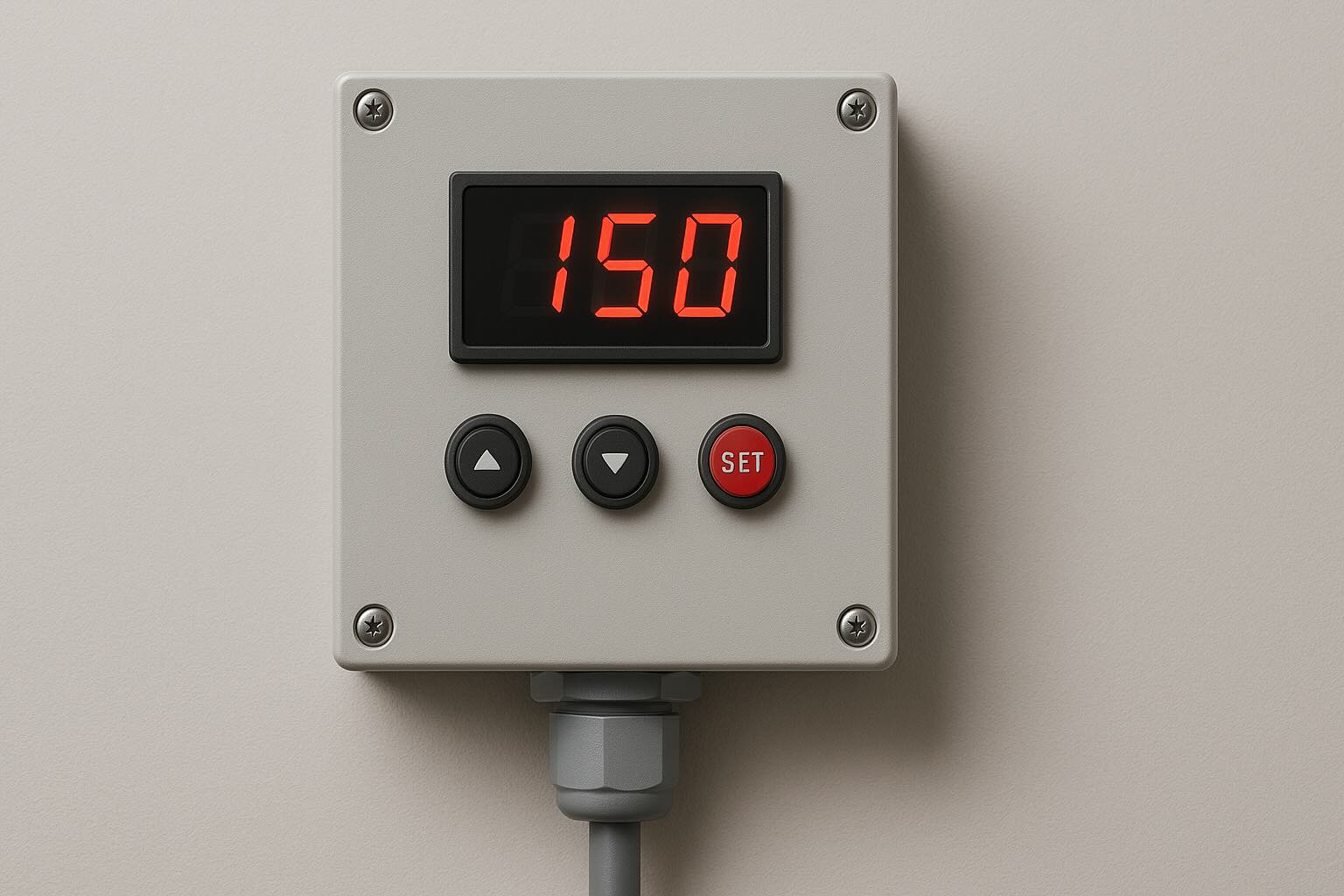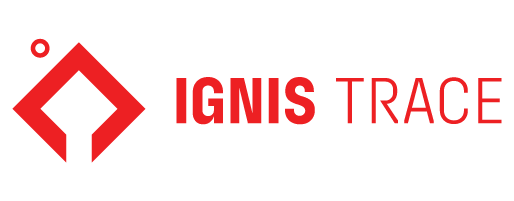In today’s industrial environments, heat control panels play a crucial role in maintaining process stability, energy efficiency, and safety. These systems are specifically designed to monitor and regulate temperatures within precise limits, ensuring that machinery and production lines operate under optimal conditions. Without proper temperature control, many industrial processes would suffer from inconsistencies, lower product quality, and increased risk of failure or hazardous events. Heat control panels eliminate these issues by providing automatic and accurate control of thermal variables with minimal human intervention.
Industrial heat control panel solutions come in various types, each tailored to meet specific application needs and environmental conditions. From small-scale workshops to large-scale production facilities, these panels are used in sectors such as plastics, chemicals, food processing, metal manufacturing, and more. For high-risk environments where explosive atmospheres are a concern, ex-proof panels (explosion-proof) are the go-to choice to ensure maximum operational safety. In this article, we’ll explore what heat control panels are, why they’re important, the types commonly used across industries, and the advanced technologies that enhance their performance. Additionally, we'll cover the main considerations for choosing the right panel and where these systems are most commonly applied.
What Are Heat Control Panels?
A heat control panel is an essential component used in industrial environments to manage and regulate temperature within a defined range. These panels consist of various electronic and electromechanical components such as temperature sensors, controllers (like PID units), contactors, relays, and sometimes PLCs (Programmable Logic Controllers). Their main function is to ensure that production processes maintain consistent thermal conditions, which directly impacts product quality, equipment longevity, and energy consumption. Depending on the complexity of the process, a heat control panel can be a simple thermostat-based unit or an advanced system with smart automation features.
Industrial heat control panel systems are typically installed in enclosures that protect internal components from dust, moisture, and other environmental hazards. Operators can use the interface on these panels to set temperature values, monitor process performance, and receive alarms or alerts when deviations occur. Modern systems also allow real-time monitoring, data logging, and remote control. By automating temperature management, these panels reduce the need for manual intervention and significantly lower the risk of human error. As a result, they have become a standard requirement across many industrial sectors where temperature control is critical.
Why Are Heat Control Panels Important?
 Heat control panels are vital for maintaining precision, safety, and efficiency in industrial processes. In many manufacturing operations, temperature has a direct impact on the chemical or physical transformation of materials. Inconsistent heat levels can lead to product defects, energy waste, or even hazardous situations such as overheating or fire. By ensuring that machinery and systems operate within pre-defined thermal limits, heat control panels eliminate fluctuations that may compromise product quality or equipment safety. This is especially crucial in industries like food processing, pharmaceuticals, plastics, and chemicals, where even minor temperature deviations can result in product loss or compliance failures.
Heat control panels are vital for maintaining precision, safety, and efficiency in industrial processes. In many manufacturing operations, temperature has a direct impact on the chemical or physical transformation of materials. Inconsistent heat levels can lead to product defects, energy waste, or even hazardous situations such as overheating or fire. By ensuring that machinery and systems operate within pre-defined thermal limits, heat control panels eliminate fluctuations that may compromise product quality or equipment safety. This is especially crucial in industries like food processing, pharmaceuticals, plastics, and chemicals, where even minor temperature deviations can result in product loss or compliance failures.
Beyond quality assurance, these panels also contribute significantly to energy optimization. A well-designed heat control panel helps minimize unnecessary power consumption by activating heating or cooling components only when needed. This leads to lower operational costs and supports sustainable production practices. In addition, modern control panels are equipped with advanced monitoring features, alarms, and even remote access capabilities. This makes it easier for operators to identify potential issues early and take corrective action, reducing downtime and maintenance costs. Ultimately, industrial heat control panels are not just tools for temperature management—they are key components in ensuring a safe, reliable, and cost-effective production environment.
What Are the Main Heat Control Panels Used in Industry?
In industrial settings, different processes require different types of temperature regulation systems. As a result, heat control panels are designed in various configurations to match specific operational needs. The type of panel chosen depends on factors such as the level of temperature precision required, the complexity of the system, environmental hazards, and the desired automation level. From basic mechanical control to advanced digital systems, industries today rely on a range of heat control panel solutions to ensure process reliability and safety.
The most common types of industrial heat control panels include thermostat-controlled panels, PID-controlled panels, programmable smart panels, and ex-proof panels designed for hazardous locations. Each of these panels serves a particular purpose and offers different benefits depending on the application. Below is an overview of these major panel types and the typical use cases they are best suited for.
Thermostat-Controlled Panels
Thermostat-controlled panels are the most basic type of heat control systems. These units operate by switching heating or cooling devices on or off based on a single temperature threshold. They are ideal for simple processes where precision is not critical but consistent heating is necessary. Thermostat-based panels are cost-effective and easy to maintain, making them suitable for smaller operations or less sensitive applications.
PID-Controlled Panels
PID-controlled panels use Proportional–Integral–Derivative algorithms to provide accurate and responsive temperature regulation. These panels continuously monitor temperature variations and make real-time adjustments to reduce overshooting and fluctuations. As a result, they offer a high degree of stability, which is essential in processes like plastic molding, chemical processing, and industrial ovens where precise thermal control is a must.
Programmable Smart Heat Control Panels
These advanced panels are designed for complex industrial applications that require programmable temperature profiles, data logging, remote access, and integration with other smart factory systems. Programmable smart heat control panels allow users to set different temperature levels for various stages of production and automate the switching between them. They are often used in multi-phase production lines or in facilities that aim to integrate IoT and digital control systems.
Ex-Proof (Explosion-Proof) Heat Control Panels
Ex-proof panels are engineered for use in explosive or hazardous environments where flammable gases, vapors, or dust are present. These panels are built to comply with international safety standards such as ATEX and IECEx, offering sealed and spark-proof enclosures that prevent ignition. Industries like petrochemicals, mining, and pharmaceuticals frequently use explosion-proof panels to ensure both safety and operational continuity under extreme conditions.
What Are the Advantages of Heat Control Panels?
Heat control panels offer numerous benefits that contribute to the efficiency, safety, and reliability of industrial processes. One of the most significant advantages is their ability to maintain stable temperatures automatically, reducing the need for manual intervention and minimizing human error. This stability improves product consistency, decreases production waste, and helps maintain compliance with industry-specific standards. Additionally, these systems help protect equipment by preventing overheating and reducing thermal stress on components, extending machine lifespan.
From an operational standpoint, industrial heat control panels contribute to significant energy savings by activating heaters or coolers only when required. This optimization reduces electricity consumption, leading to lower operating costs over time. With the integration of advanced technologies such as remote access and alarms, these panels also offer better process visibility, faster response times, and more efficient troubleshooting — all critical for modern, automated production environments
What Should Be Considered When Choosing a Heat Control Panel?
Selecting the right heat control panel is a critical step in ensuring both efficiency and safety in industrial operations. The wrong choice can result in inconsistent temperature regulation, increased energy consumption, and even safety hazards. Therefore, decision-makers must carefully evaluate both the technical requirements of their processes and the environmental conditions of their facilities. Factors such as control accuracy, sensor compatibility, enclosure type, and system integration should all be considered before making a selection.
For example, some applications may only need a simple thermostat-based system, while others demand advanced, programmable solutions. In hazardous locations, an ex-proof panel is often mandatory to meet strict safety standards. Ultimately, the goal is to match the control panel’s capabilities with the operational demands of the industry, ensuring reliable performance and compliance with regulations.
Application Area and Industry Type
The type of industrial heat control panel required depends heavily on the sector and process in which it will be used. Industries like plastics, food, and chemicals each have unique temperature control requirements. For instance, food processing requires strict hygiene and consistent heating, while chemical production may demand extreme precision and safety features. Understanding the specific application ensures that the chosen panel delivers optimal results.
Safety Certificates and Standards
Safety compliance is a vital factor in selecting a heat control panel. Panels used in hazardous or regulated environments must meet international certifications such as ATEX, IECEx, or UL standards. These certifications guarantee that the equipment is built to withstand the risks of its intended application. Choosing a certified system not only enhances safety but also ensures legal compliance and reduces liability for the business.
What Are the Application Areas of Heat Control Panels?
Heat control panels are widely used across a diverse range of industries where precise temperature management is essential for safety, quality, and efficiency. In the food and beverage sector, these systems regulate ovens, pasteurizers, and refrigeration units to ensure consistent product quality and compliance with health standards. In the plastics industry, panels control injection molding machines and extrusion processes where even small fluctuations in temperature can affect the final product. Chemical plants also rely on these systems to stabilize reactors and storage tanks, preventing hazardous reactions due to uncontrolled heat levels.
Beyond these sectors, industrial heat control panels are commonly found in energy production, pharmaceutical manufacturing, textile processing, and metal treatment facilities. They are essential in applications such as boilers, kilns, heat exchangers, and laboratory equipment. In high-risk environments like petrochemical plants or mines, ex-proof panels are indispensable for maintaining safety while delivering reliable temperature regulation. With their broad adaptability, heat control panels have become a fundamental component in nearly every modern industrial process, ensuring operational stability and protecting both workers and equipment.
What Technologies Are Used in Heat Control Panels?
Modern heat control panels are no longer just basic on/off devices; they incorporate advanced technologies to improve accuracy, efficiency, and integration with broader automation systems. With the rise of Industry 4.0, these panels now offer features such as remote monitoring, predictive maintenance, and seamless communication with other industrial equipment. This makes them indispensable in smart manufacturing environments where data-driven decisions and real-time control are essential. By combining robust hardware with intelligent software, these systems provide greater reliability and flexibility for demanding applications.
Common technologies found in industrial heat control panels include PID controllers for precise thermal regulation, PLC integration for advanced automation, IoT-based remote access, and specialized sensor technologies. Each of these elements contributes to improved safety, reduced energy consumption, and higher productivity. Below is an overview of the most widely used technologies in modern heat control systems.
PID (Proportional–Integral–Derivative) Control Technology
PID controllers are designed to regulate temperature with a high level of precision. By continuously calculating error values and adjusting output accordingly, they minimize overshooting and ensure stable thermal conditions. This technology is widely used in applications like furnaces, industrial ovens, and chemical reactors where accuracy is crucial.
PLC (Programmable Logic Controller) Integration
PLC integration allows a heat control panel to interact with other systems within a production line. Through programmable logic, complex operations can be automated, enabling synchronization between heating, cooling, and other process equipment. This level of automation is especially beneficial in large-scale facilities with multiple interconnected systems.
Remote Monitoring and IoT-Based Technologies
IoT-based solutions provide the ability to monitor and control heat control panels remotely via computers, tablets, or smartphones. Operators can track performance in real time, receive alerts in case of anomalies, and make adjustments without being physically present. This not only improves efficiency but also reduces downtime and maintenance costs.
Sensor Technologies (PT100, RTD, Thermocouple)
Accurate sensors are the backbone of any heat control system. PT100, RTD, and thermocouple sensors measure temperature across different ranges with varying levels of precision. Selecting the right sensor ensures that the ex-proof panel or standard system delivers reliable data and consistent performance, regardless of environmental conditions.

 Türkçe
Türkçe



